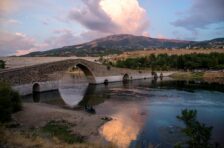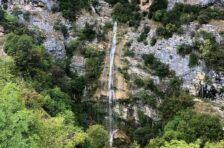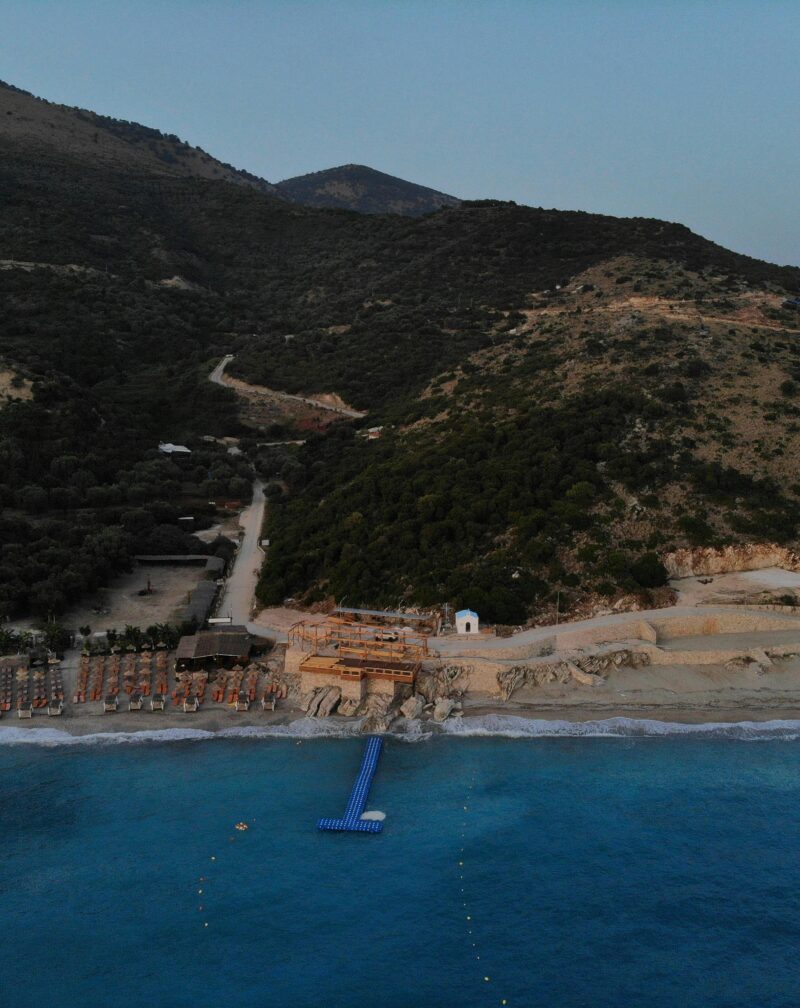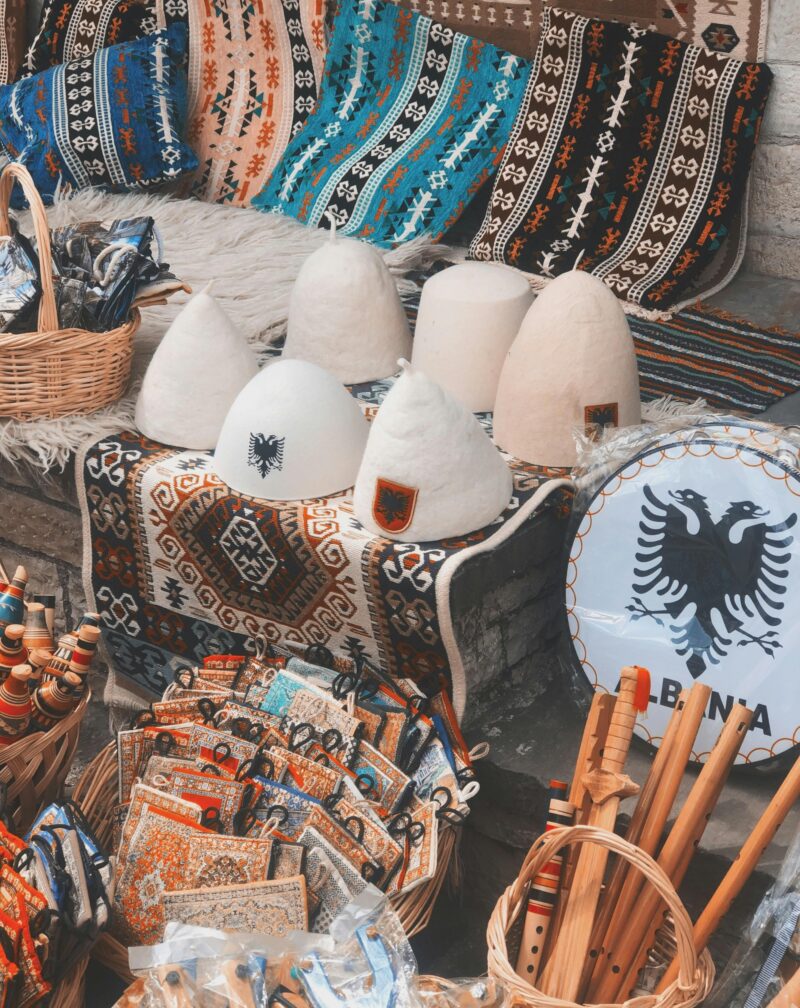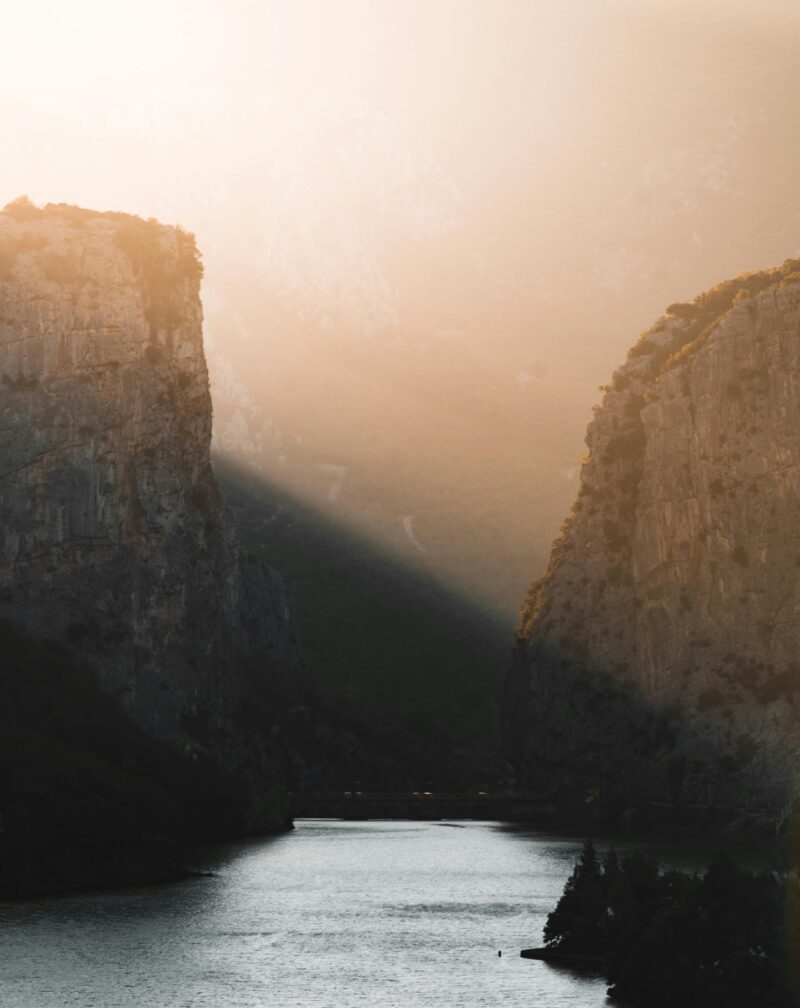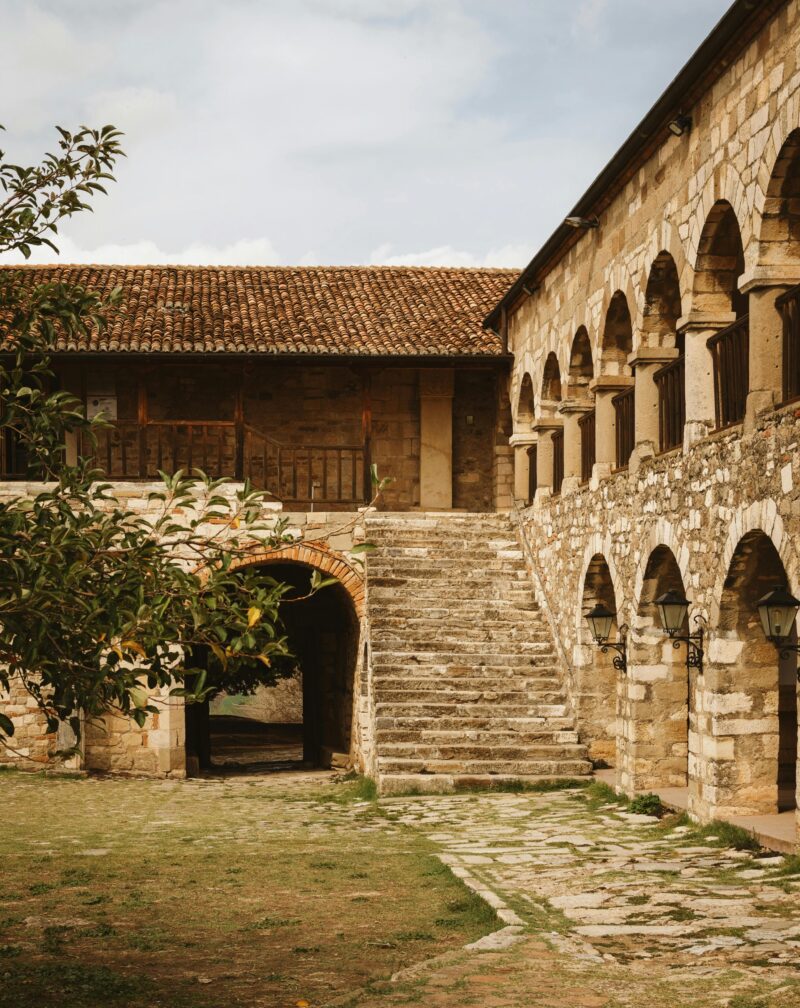Making the Case for Albanian Travel
This question comes up constantly in travel forums, conversations, planning discussions. People have heard about Albania. Maybe they’ve seen photos. Maybe a friend visited. But they’re not sure if it’s worth the effort compared to more familiar destinations.
What You’ll Experience
History Without Crowds How often do you visit a Roman amphitheater and have it essentially to yourself? In Albania, this happens regularly outside summer.
Butrint offers what Pompeii or Ephesus delivered decades ago—major archaeological site without tour buses, selfie sticks, or crowds ruining every photo. UNESCO protection ensures preservation, but tourist numbers remain manageable.
The same applies to Byzantine churches, Ottoman mosques, medieval castles. They’re there, they’re impressive, they’re accessible, but they’re not overrun.
For history enthusiasts tired of fighting crowds at famous sites, Albania provides relief.
Beaches That Feel Undiscovered Albanian Riviera beaches compete with anywhere in the Mediterranean for beauty. Water clarity, pebble beaches, dramatic mountain backdrops—it’s genuinely stunning.
You can still find beaches where you’re alone or nearly so, particularly outside July-August. That’s increasingly rare in the Mediterranean.
Ksamil gets compared to Caribbean islands—turquoise water, small islands you can swim to, white pebbles. It’s not hyperbole. It genuinely looks like that.
Authentic Cultural Experiences Albania hasn’t perfected the tourist experience yet, which means you encounter real life more often.
That village restaurant isn’t designed for tourists—it serves local families. The menu might be handwritten or verbal. The food is what locals eat, not adapted for foreign palates.
When you’re invited for coffee at someone’s home, it’s genuine hospitality, not a staged “cultural experience” you paid for.
This means more unpredictability and occasional difficulty. But it also means authenticity that’s hard to find in heavily touristed destinations.
Value Albania costs significantly less than most European destinations. This democratizes travel—people who can’t afford high European prices can visit Albania comfortably.
A three-course meal with wine might cost €12-18. Hotels run €40-80 for nice accommodations. Tours cost less. Transport is cheap.
Budget travelers can survive comfortably on €30-40 daily. Mid-range travelers live well on €70-100. Luxury is achievable for prices that would barely cover basics in Western Europe.
Variety in Small Space Albania packs remarkable variety into a small country. You can swim at Mediterranean beaches, hike mountain trails, explore ancient ruins, visit Ottoman towns, and experience communist history—all within a week or two.
The entire country is smaller than Belgium or Maryland. You can drive from the capital to the southern coast in five hours. Northern mountains in three This compactness means you see diverse landscapes and experiences without constant long-distance travel.
The Surprises Albania surprises visitors consistently. People arrive with low expectations shaped by Cold War stereotypes or vague notions of poverty and crime.
Then they find beautiful architecture, delicious food, warm people, and stunning nature. The gap between expectation and reality is large, which creates memorable experiences.
Travelers consistently report Albania exceeded expectations more than destinations they visited with higher anticipations.
The Challenges (Because Honesty Matters)
Language Barriers English proficiency drops quickly outside tourist zones and young people. Communicating in villages or small towns requires patience and creativity.
This isn’t insurmountable, but it takes more effort than countries where English is widely spoken.
Service Expectations Albanian service culture differs from Western norms. Waiters don’t hover. Check-out times might be flexible but also confusing. Things that should be straightforward sometimes aren’t.
People accustomed to Scandinavian efficiency or American customer service might find this frustrating.
Tourist Infrastructure Not everywhere has English signage. Tourist information offices exist but aren’t always helpful. Bus schedules are approximate. Booking systems can be confusing.
You need to be more self-reliant than in destinations with mature tourism industries.
Why Visit Despite Challenges?
Because the challenges are part of the experience. Albania rewards travelers who value authenticity.
If every destination offered perfect infrastructure and predictable experiences, travel would be boring. The fact that Albania doesn’t always run smoothly is precisely why it remains interesting.
You’ll have stories. Not just “I visited beautiful beaches” but “I helped an elderly Albanian woman catch her runaway chicken and she invited us for coffee which turned into a three-hour lunch with her family.”
Who Should Visit
Good fit:
- History and archaeology enthusiasts
- Budget-conscious travelers wanting European experience affordably
- People interested in recent history (communism, transitions)
- Beach lovers seeking less crowded Mediterranean
- Culture seekers wanting authentic experiences
- Photographers looking for stunning, un-photographed locations
Maybe not ideal:
- Travelers needing everything planned and guaranteed
- People uncomfortable without English everywhere
- Those requiring consistently high service standards
- Travelers who panic when things don’t go as expected
- Anyone needing specific accessibility accommodations (Albania’s infrastructure is limited)
The Deeper Answer
Beyond practicalities, Albania offers something harder to quantify hope.
This is a country that endured centuries of occupation, decades of brutal dictatorship, and isolation that few places experienced. The bunkers scattered everywhere aren’t quaint historical artifacts—they’re physical manifestations of paranoia and oppression from just 30 years ago.
Yet Albania emerged from this and is building something new. Not perfectly, not without setbacks and corruption and difficulties. But visibly, tangibly improving.
Walking through Tirana’s Blloku district—once forbidden to ordinary citizens, now vibrant with cafes and galleries—you see transformation made physical. Talking with young Albanians who speak four languages and dream big dreams, you encounter resilience and ambition.
The elderly woman who lived through it all and still offers boundless hospitality. The returned diaspora member investing in their hometown. The guide studied archaeology despite limited resources because they love their country’s history.
These aren’t in guidebooks. But they’re what makes Albania compelling beyond its beaches and castles.
The Short Version
Visit Albania for:
- Ancient ruins without crowds
- Stunning beaches at reasonable prices
- Ottoman architecture perfectly preserved
- Unique communist history
- Genuine hospitality
- Mountain beauty
- Archaeological treasures
- Authentic culture
- Value for money
- The feeling of discovering something before everyone else does
Accept that:
- Infrastructure is improving but imperfect
- Service varies
- English isn’t universal
- Things don’t always go as planned
- You’ll need flexibility and patience
If that trade-off appeals to you, book your trip. Albania rewards visitors willing to meet it on its own terms rather than expecting it to conform to external standards.
The Personal Note
I’ve watched Albania change over years. Roads improve. Hotels multiply. Prices rise slowly. Tourist numbers increase.
This is good for Albania. Economic development, international connections, recognition for the country’s assets—these matter more than keeping the place “undiscovered” for travelers seeking authentic experiences.
But it means the Albania you visit this year won’t be the same Albania in five years. The window for experiencing it in this transitional state is closing gradually.
If Albania interests you at all, visit sooner rather than later. Not because it will become bad—it will likely become easier and more convenient. But it will become different. Less rough, more polished. More familiar, less surprising.
The Albania that exists now—improving but still authentic, developing but not yet transformed—won’t last forever. That’s not a crisis, just reality. Everything changes.
Whether that makes you want to visit now or wait until it’s more developed depends on what you value in travel. There’s no wrong answer, only different preferences.
But if you go now, you’ll experience something special: a country in the act of becoming, not yet settled into what it will be. And that’s a privilege increasingly rare in our documented, developed, globalized world.




